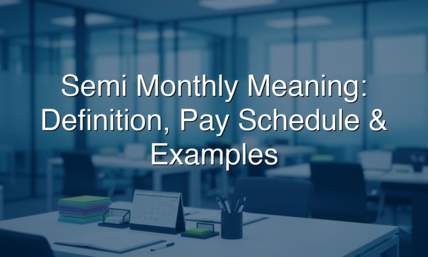Stop Enhanced Recovery Company And Remove From Your Credit Report - What to Know
It’s never fun to receive a phone call from a debt collector such as Enhanced Recovery Company. It can be an intensely stressful experience to keep receiving their harassing phone calls time and time again. In this article, we’ll explain fully how you can put an end to those annoying phone calls.
Of course, if you are receiving phone calls from a debt collection agency, then the phone calls are actually the least of your worries. If you don’t pay the collection agency, you run the risk of being sued. Additionally, having an account in collections will be detrimental to your credit score.
Having an account in collections poses two main problems:
-
The account has to be resolved. The collection agency will continue to call and may take legal action until the debt is resolved.
-
Your credit score will be damaged by having unresolved debt.
These challenges, although separate, are indeed related. The first of which involves interacting with the debt collection agency, whereas the other involves one of the top 3 credit bureaus, which are Equifax, TransUnion, and Experian.
Also read: Can I Pay Off My Mortgage Early?
- What is The Enhanced Recovery Company LLC?
- How to Stop ERC From Calling You
- What to Do When ERC Contacts You
- Step 1. Understand Your Rights
- Step 2: Validate and Verify Your Debts
- Step 3: Dispute the Debt
- Step 4. Contest the Debt to Credit Bureaus or Settle with a Pay For Delete Agreement
- Step 5: Hire a Credit Repair Company
- Conclusion

What is The Enhanced Recovery Company LLC?
The ERC are a third party debt collection agency. If you find that this company are calling you, then this means that they have managed to buy a debt that you have, and they have acquired the responsibility of getting you to pay up.
The company’s speciality is the collection of past due debts that are owed to a wide variety of different lenders, banks, credit card companies, utilities, and even cell phone providers. Some popular companies that use the services of the ERC are DirectTV, AT&T, Sprint, and T-Mobile.
When you are first contacted by the ERC, they have up to five days to send you a written notice of debt.
Also read: What is a Bridge Loan?
How to Stop ERC From Calling You
New regulations that came into effect in November 2021 has brought in strict limitations on the amount of collection calls that can be made by debt collectors. Before these limitations were brought in, debt collectors like ERC could call as much as 15 times in a single day.
The new regulations state:
-
Debt collectors cannot call you over seven times in seven days.
-
Once a debt collector speaks to you, they must wait a week before calling once again.
Debt collectors can now get in tough with you by text or email, but you can take control and stop all communication from debt collectors if you choose to. This is how:
Step 1: Write a “cease” letter to ERC telling them to stop contacting you.
Step 2: Make sure to make yourself a copy of the letter.
Step 3: Prove you sent the letter by certified mail and send with “return receipt requested”.
According to the National Consumer Law Center, debt collectors can only acknowledge the letter and only get in touch with you once legal steps are being taken. This should stop those annoying calls, and give you some space to take action and fix your financial situation.
Also read: Checklist For Moving Into Your New House
What to Do When ERC Contacts You
If the ERC calls you up, or any other debt collection agency for that matter, these are some things that you should keep in mind:
-
Do not panic. Panicking won’t help the situation, but only make it worse!
-
Don’t just ignore it. It may seem easier to just blow it off, but this debt will not just disappear. It has to be dealt with.
So now that we’ve covered what not to do, let’s take a look at how you should deal with this situation. We’ll take you through the process step by step.
Also read: How to Apply For a FHA Loan?

Step 1. Understand Your Rights
Whether it is the ERC or any other agency calling you to collect debts, they have to operate under The Fair Debt Collection Practices Act. This means that they are obligated to abide by the following points:
-
Debt collectors must only call between the hours of 8:00 and 21:00
-
Debt collectors cannot call you at work
-
Debt collectors must be in communication with your lawyer if you have one
-
Debt collectors must not have any communication with your friends or family or reveal your debts to anyone
-
Debt collectors cannot threaten you, your reputation, or property
-
Debt collectors cannot use any profanity
-
Debt collectors have to identify themselves along with the company whom they represent
-
Debt collectors are not allowed to threaten to seize your assets, property, or have you sent to prison
If a debt collector is breaking any of these rules, you should report them to either the CFPB, the FTC, or an attorney general.
A complete summary of your financial rights can be found from the Consumer Financial Protection Bureau if you want to understand more about the Fair Debt Collection Practices Act and your rights.
Step 2: Validate and Verify Your Debts
Debt collection agencies must send a Notice of Debt to you within 5 days after they first make contact with you. This is in accordance with new regulations that took effect in November 2021.
Once they send this notice to you, you should check to see if the notice is valid, incomplete, or if it is impossible to collect the debt. If the notice is valid, it will have an itemization date, which can be one of the following dates:
-
The date of the last invoice or statement that was provided to the consumer by the creditor.
-
The charge-off date
-
The date of the newest payment applied to the debt
-
The date of the transaction that caused the debt
-
The court judgement date if applicable
The itemization date is important to take note of, as it will let you know if The Statute of Limitations has expired, and if the debt will be dropped from your credit report.
The Notice of Debt also needs to feature the following information regarding the debt:
-
The name and mailing address of the debt collector
-
The name and address of the consumer
-
The name of the creditor to which the debt is owed
-
The account number attached to the debt
-
The outstanding balance
-
Any additional fees, interest, or other kinds of charges
-
A statement to inform you of your rights according to the Fair Debt Collection Practices Act
-
A statement to inform you of your right to dispute the debt before 30 days after getting the letter
The Notice of Debt comes with a return form that allows you to dispute the debt if you choose to. This must be done within 30 days, and you must select one of the following reasons for the dispute:
-
This debt is not mine
-
The amount is incorrect
-
Other (you must explain)
Since there are new regulations that have come into effect in recent years, you may find that some debt collectors who had bought debts prior to these new regulations may not give you all the information they are legally obliged to provide. This is why it’s essential to be informed about these regulations, and why it’s important that you read your Notice of Depth in close detail. If it doesn’t comply with new laws, you must inform the debt collector.
Also read: Pay Rent With a Credit Card
Step 3: Dispute the Debt
If you fail to dispute the depth before 30 days elapse, the debt is always presumed to be valid. You should dispute any debts held by debt collection agencies, especially if they fail to comply with new regulations.
When filling out a debt dispute letter template, you must also make sure that it is made for Notices of Debt received after the new regulations. Your dispute letter must address the following issues:
-
Documentation is required to verify that it is in fact you that owes the debt.
-
Inquire whether the Statute of Limitations has expired or not. They are not legally obliged to tell you, but they cannot lie to you. If they say nothing, the Statute of Limitations could have expired on the debt
-
Inquire whether the debt collection agency has a license to collect debts in your particular state
-
Ask for a copy of the latest billing statement that was sent by the creditor
If a debt cannot be proven to be yours, the debt collector cannot collect the debt or report it to credit bureaus. If they can’t provide sufficient evidence to prove their case, they have no grounds to take any further action.
It’s a good idea to check the date on the Notice of Debt and compare it to the Statute of Limitations in your particular state. If it has expired, then the debt collectors cannot come to collect it, and they cannot sue you. Bear in mind that acknowledging the debt or making a payment will restart the Statute of Limitations, which originally starts once the debt is reported as delinquent. If you find that the Statute of Limitations has nearly expired on your debt, it may be a good idea to just wait it out.

Step 4. Contest the Debt to Credit Bureaus or Settle with a Pay For Delete Agreement
If you do not believe that you owe the debt or that it has not been validated, you can file a dispute to one of the three big credit bureaus. You can dispute the debt separately to each of the bureaus, either by contacting them by mail or online. If they cannot verify the debt, they take if off your credit record. Remember though, that even if the debt is removed from your credit record, debt collection agencies may still try to collect.
If you decide that the debt has been validated, you should resolve the debt with a settlement. Debt collectors, on average, pay 4 cents per dollar of debt that they purchase. This gives you some space for negotiation, as the debt collector can accept less money than you owe and still make some profit.
According to this article from US News & World Report, debt collection agencies can settle for 40% to 60% of the debt. It’s worth offering as low as 10% just to see how much money you will be able to save. You should negotiate with the debt collector until you can reach an agreement.
Once the debt has been paid, the debt collection agency may agree to take off the account from your credit report. This is known as a “pay for delete” agreement. This should be discussed with your debt collector during the negotiation of your settlement agreement. You may want to use a formal “pay for delete letter”, and make sure to ask them for a written agreement.
Step 5: Hire a Credit Repair Company
If you just don’t want to deal with the process of writing letters and negotiating with ERC on phone calls, you may want to hire a credit repair company to help you. These companies are experts in dealing with aggressive debt collectors, so they may achieve a better outcome for you.
The industry of credit repair companies have a poor reputation to say the least, so you have to watch out for scammers. There are, however, legitimate credit repair companies that can help you. Allowing a professional to do most of the work for you early on may even safe you some money in the long term.
Conclusion
The debt collectors, unfortunately, will not just go away if you ignore them. They are persistent and tenacious, and they will continually harass you until you pay them. They may even take you to court if you don’t comply. It’s essential that you take action as soon as possible, and learn how to communicate with them to come to a negotiated solution that works for both you and them. You also need to be aware of your rights, as well as the current laws and regulations.
Take control of your finances by taking positive action to resolve your debts.
A free paystub generator is a great, affordable way to create custom paystubs.















